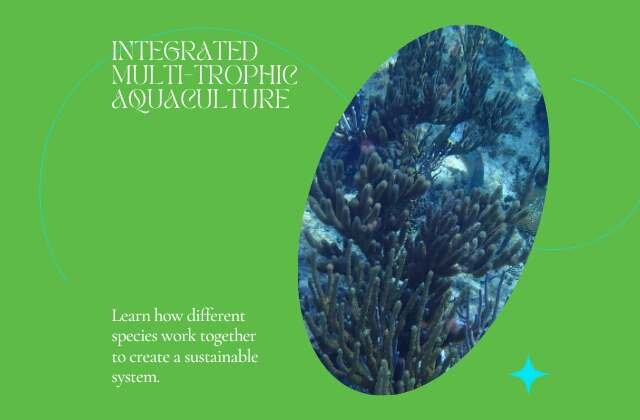
Understanding Integrated Multi-Trophic Aquaculture (IMTA)
Introduction
Integrated Multi-Trophic Aquaculture (IMTA) represents a forward-thinking approach to aquaculture that seeks to mimic natural ecosystems for sustainable seafood production. By combining the farming of fish with a variety of other aquatic organisms, IMTA systems aim to balance environmental health with economic viability, creating a circular economy within aquaculture practices.
The Principles of IMTA
At its core, IMTA is about integrating the cultivation of species from different trophic levels to create a balanced system. This means that the waste products from one species serve as inputs (e.g., food, fertilizer) for another. Typically, this involves the farming of fish (fed species), shellfish (which filter and consume nutrients from the water), and seaweeds (which absorb dissolved nutrients).
Environmental Benefits
One of the primary advantages of IMTA is its potential to reduce the environmental impact of aquaculture. Traditional monoculture aquaculture systems often discharge nutrients and waste materials into the environment, leading to pollution and eutrophication. IMTA, by contrast, recycles these waste products, significantly reducing the discharge of nutrients into surrounding ecosystems.
Moreover, IMTA can enhance biodiversity and contribute to the restoration of ecosystems by providing varied habitats within the aquaculture system. This not only helps in conserving biodiversity but also in stabilizing the ecosystem functions.
Economic Viability
IMTA is not just environmentally sustainable; it's also economically viable. By producing multiple products, farmers can diversify their income sources, reducing the risk associated with market fluctuations in single-species farming. Additionally, the efficiency of resource use in IMTA systems can lead to lower production costs and higher overall productivity.
Challenges and Considerations
Despite its benefits, the implementation of IMTA faces several challenges. These include technical difficulties in managing multi-trophic systems, the need for specialized knowledge, and the complexity of balancing the growth rates and nutritional needs of different species. Regulatory hurdles and market acceptance also pose significant challenges, as IMTA systems can be more complex to manage and regulate than traditional aquaculture operations.
Moreover, the success of IMTA systems can be highly site-specific, depending on local environmental conditions and the species involved. This necessitates thorough research and planning to design systems that are both productive and sustainable in a given location.
The Future of IMTA
As the demand for seafood continues to grow, and the environmental impacts of traditional aquaculture become increasingly untenable, IMTA offers a promising path forward. By leveraging the principles of ecosystem balance and resource recycling, IMTA can help meet global seafood demand sustainably.
Research and innovation are key to overcoming the challenges faced by IMTA. Advances in technology, breeding, and system design are making it increasingly feasible to implement IMTA on a larger scale. Moreover, growing consumer awareness of environmental issues is likely to increase demand for sustainably produced seafood, further driving the adoption of IMTA practices.
Conclusion
Integrated Multi-Trophic Aquaculture represents a holistic approach to aquaculture that aligns with the principles of sustainability and ecosystem health. By mimicking natural ecosystems, IMTA systems can produce seafood in a way that minimizes environmental impacts while providing economic benefits. Despite the challenges, the potential of IMTA to contribute to sustainable seafood production is immense. As we continue to refine and adapt these systems, IMTA stands as a beacon of innovation in the quest for sustainable aquaculture.

